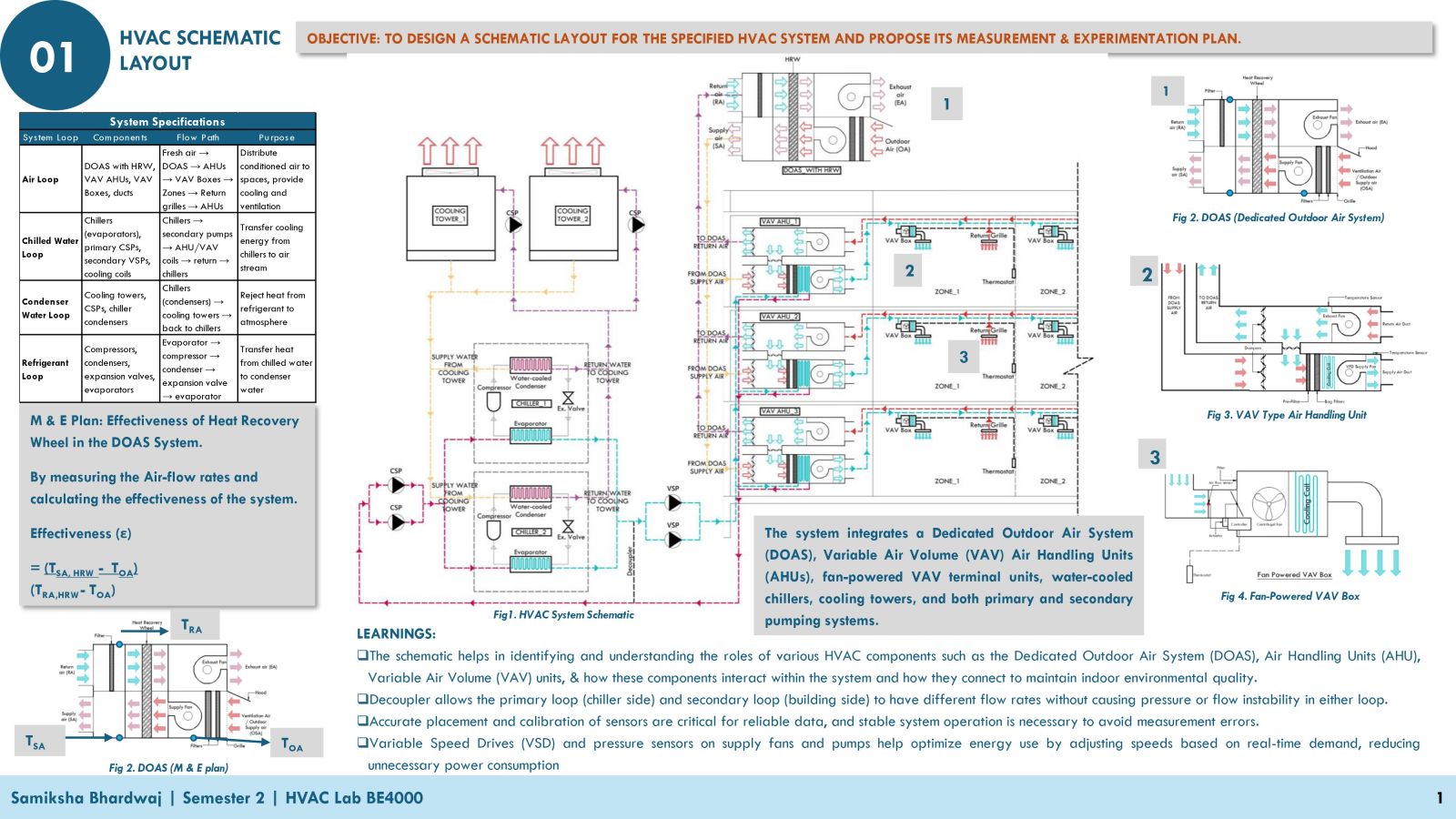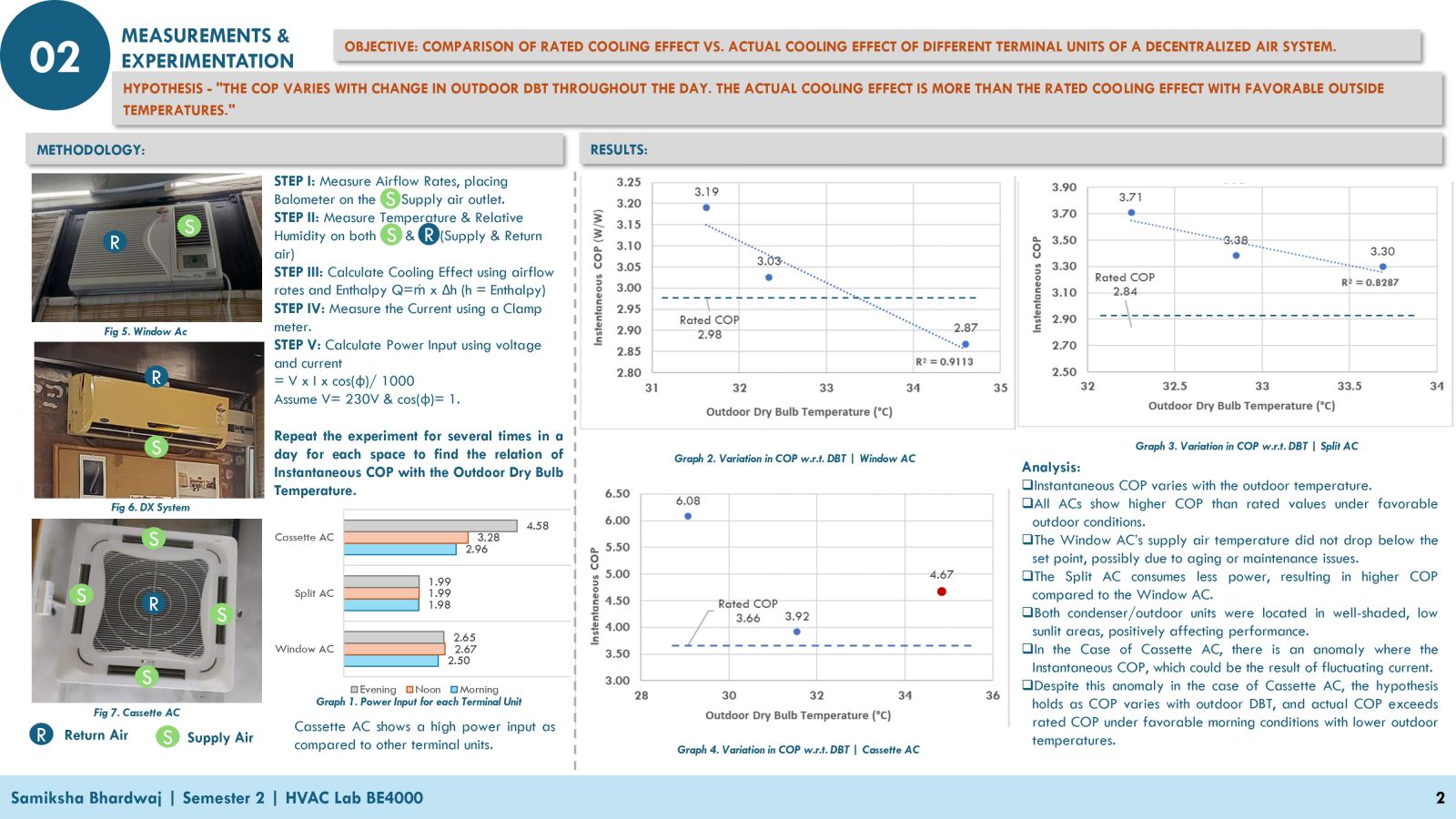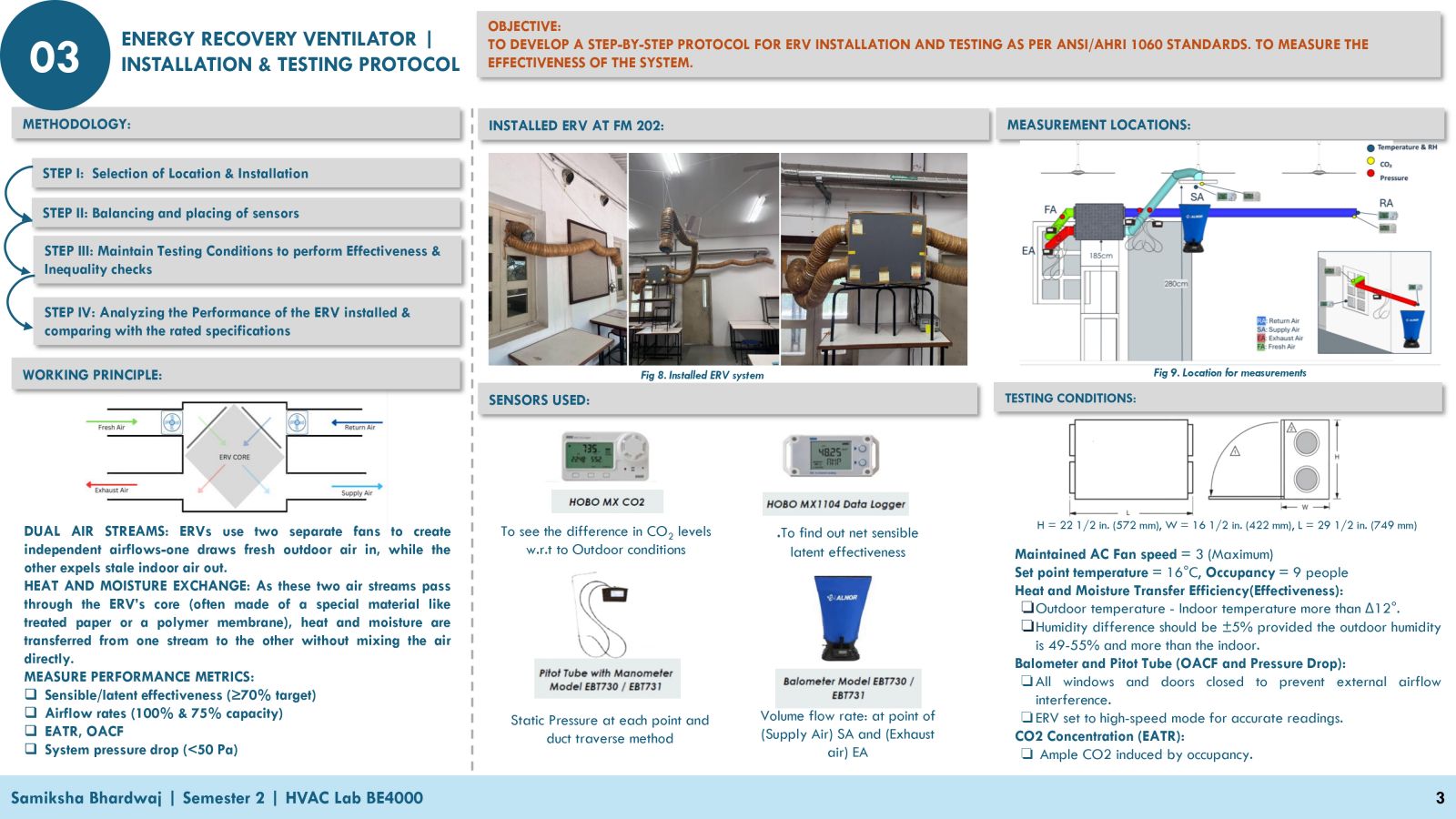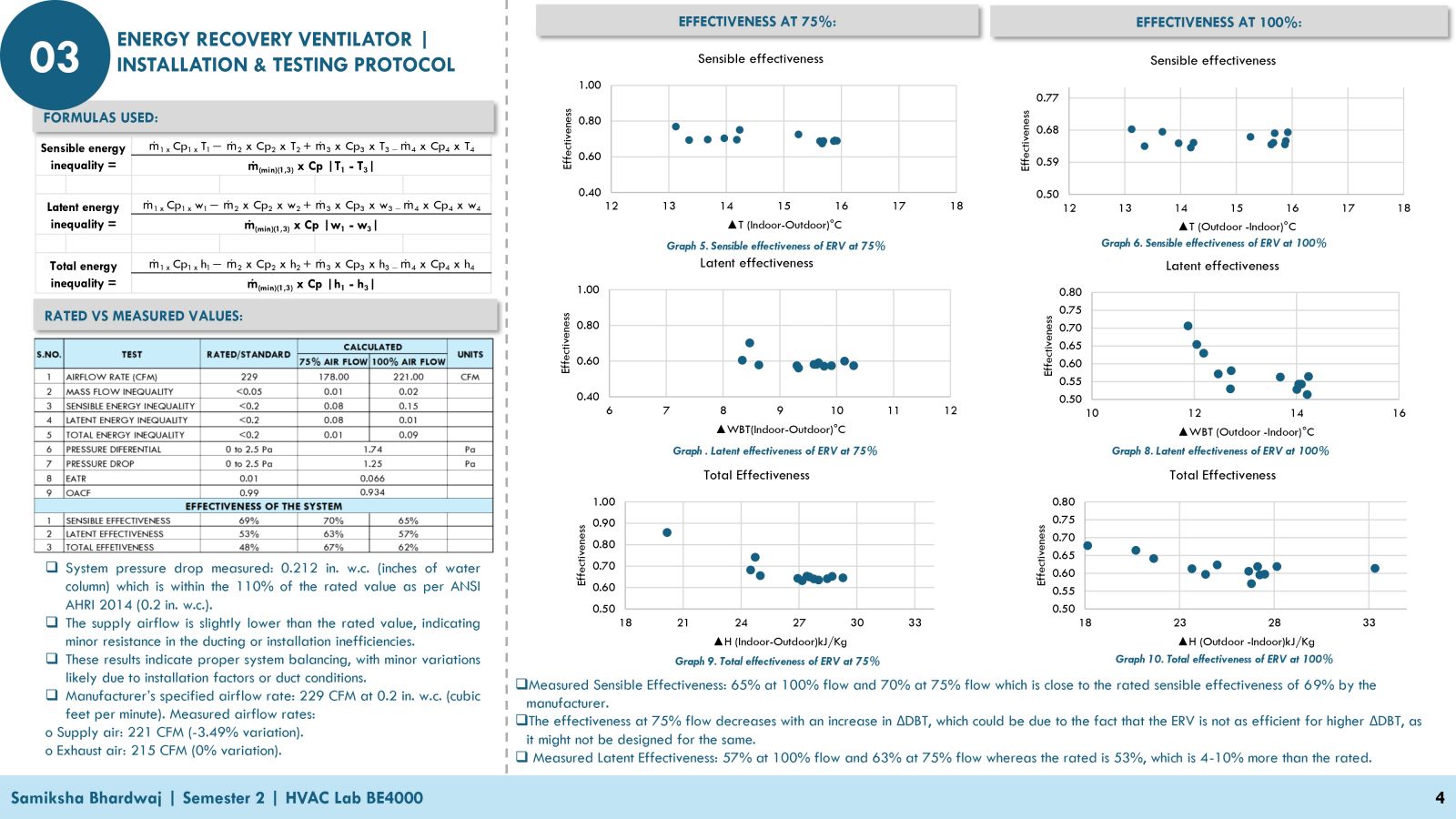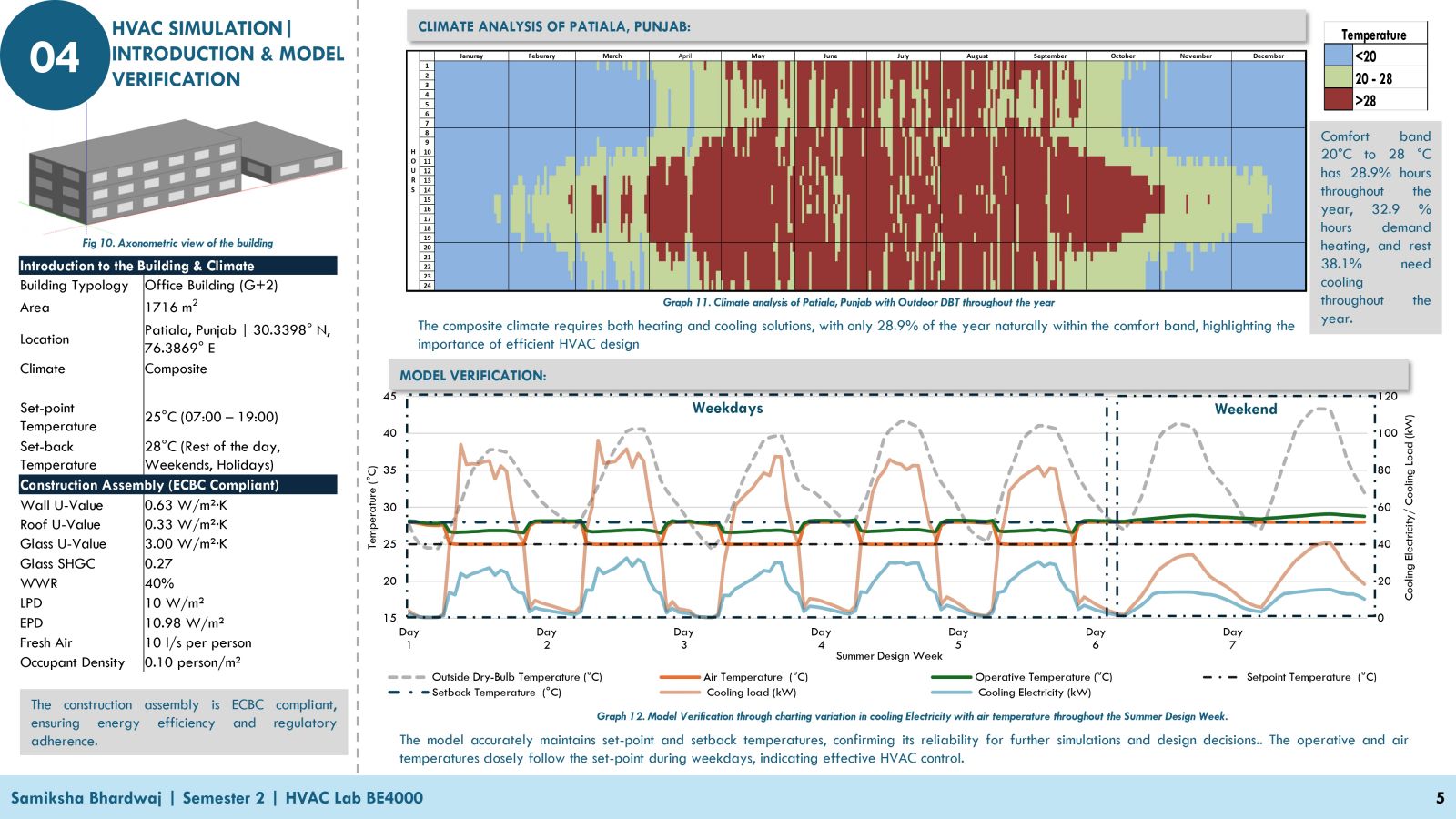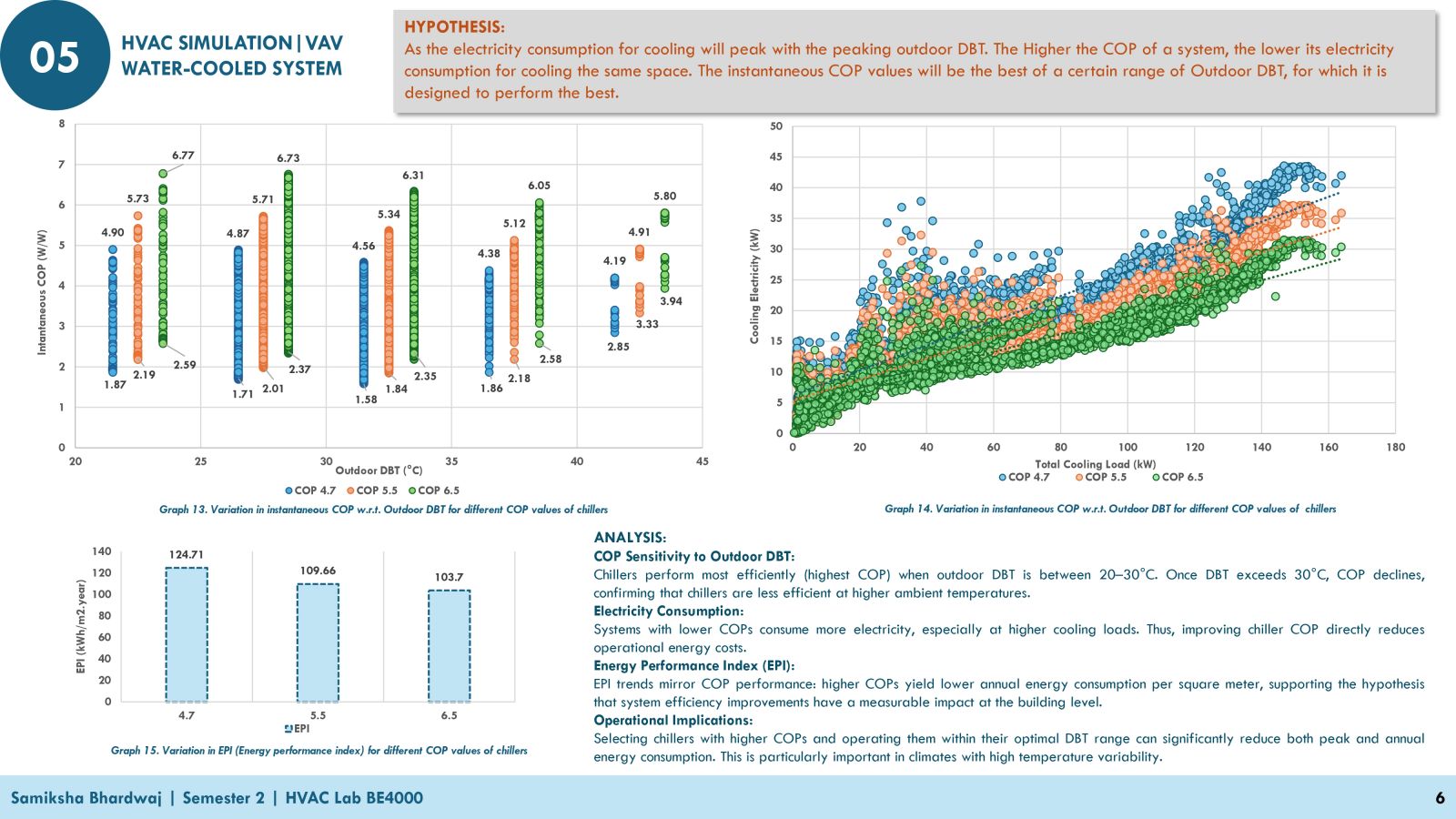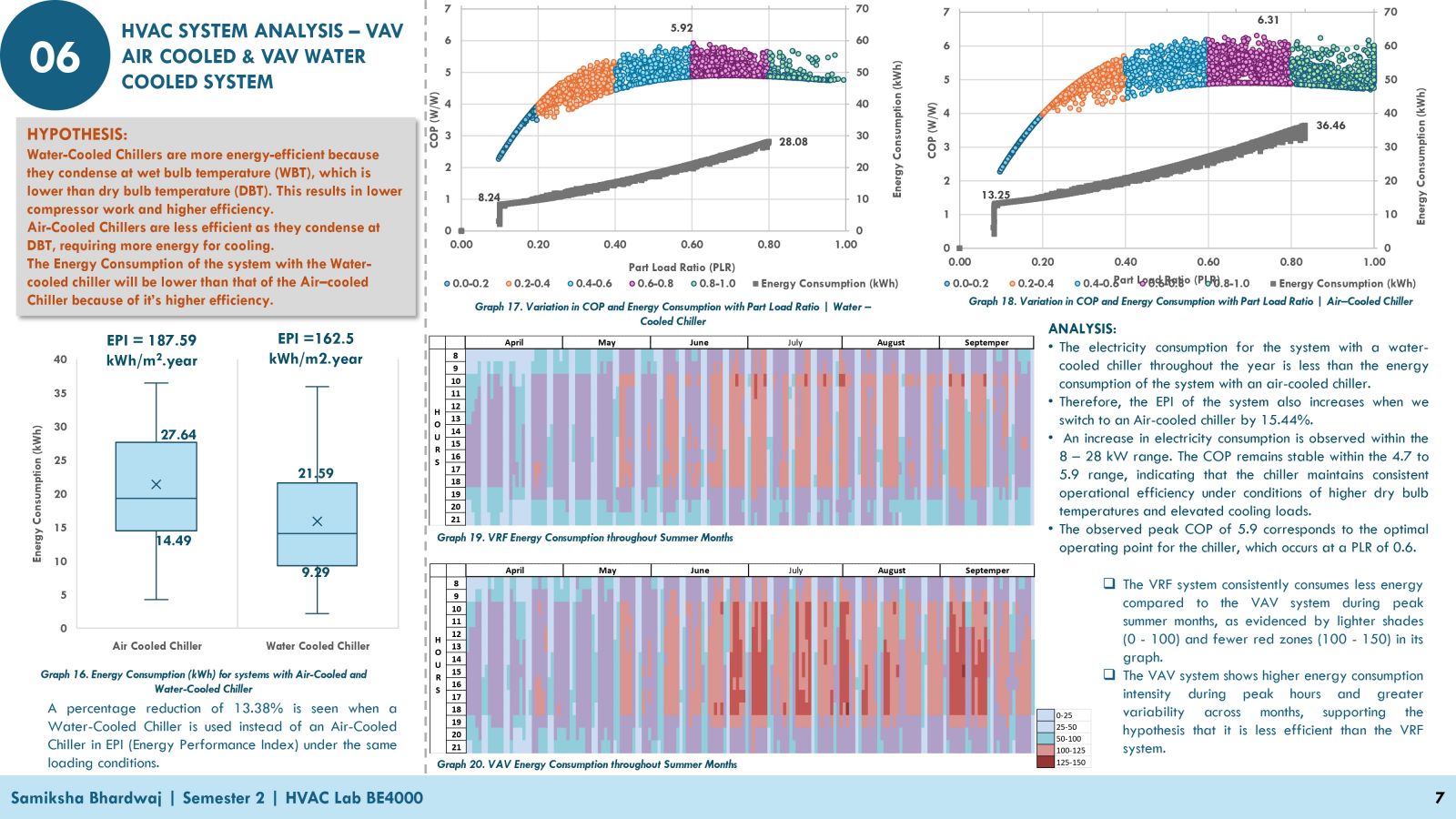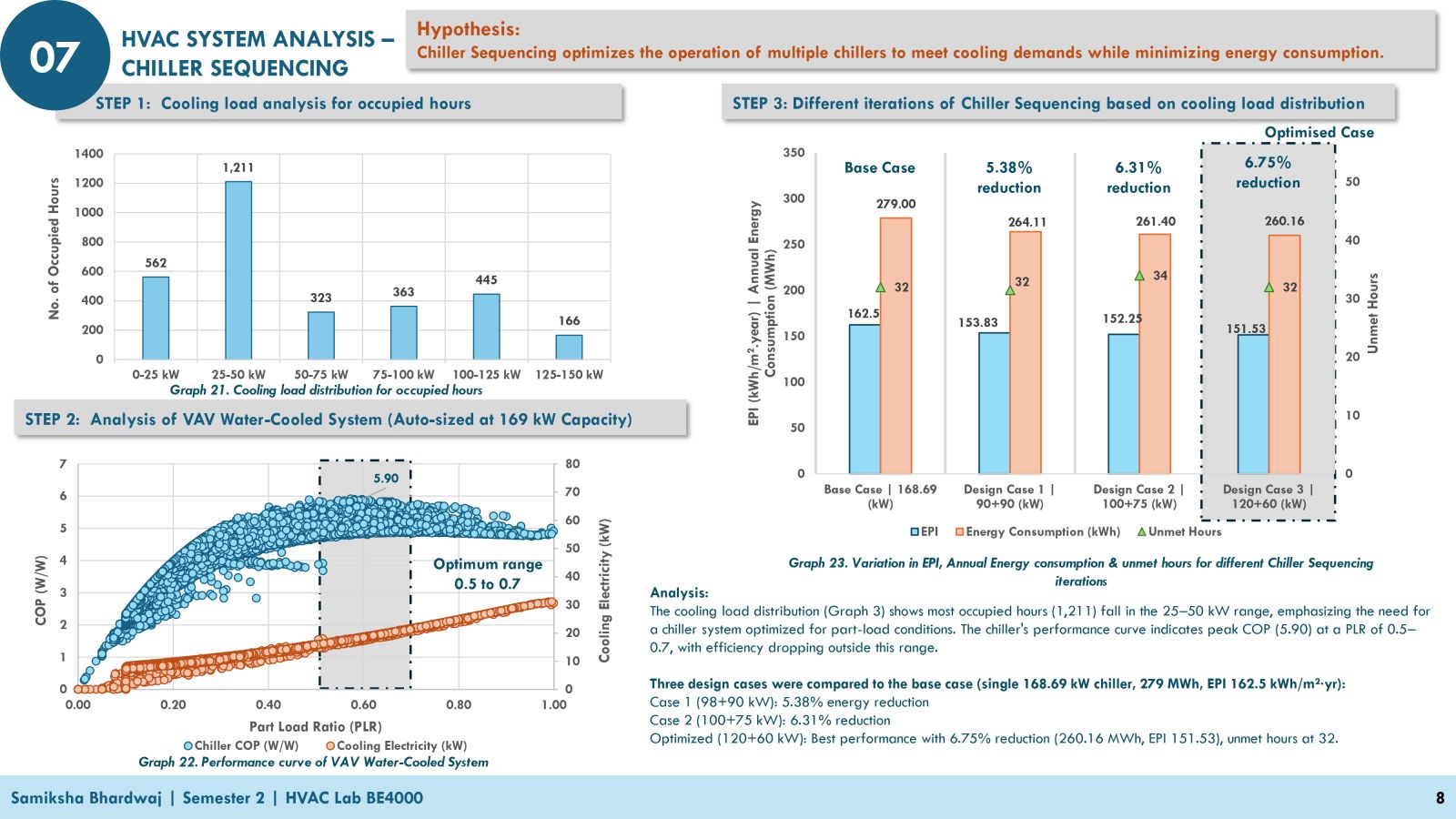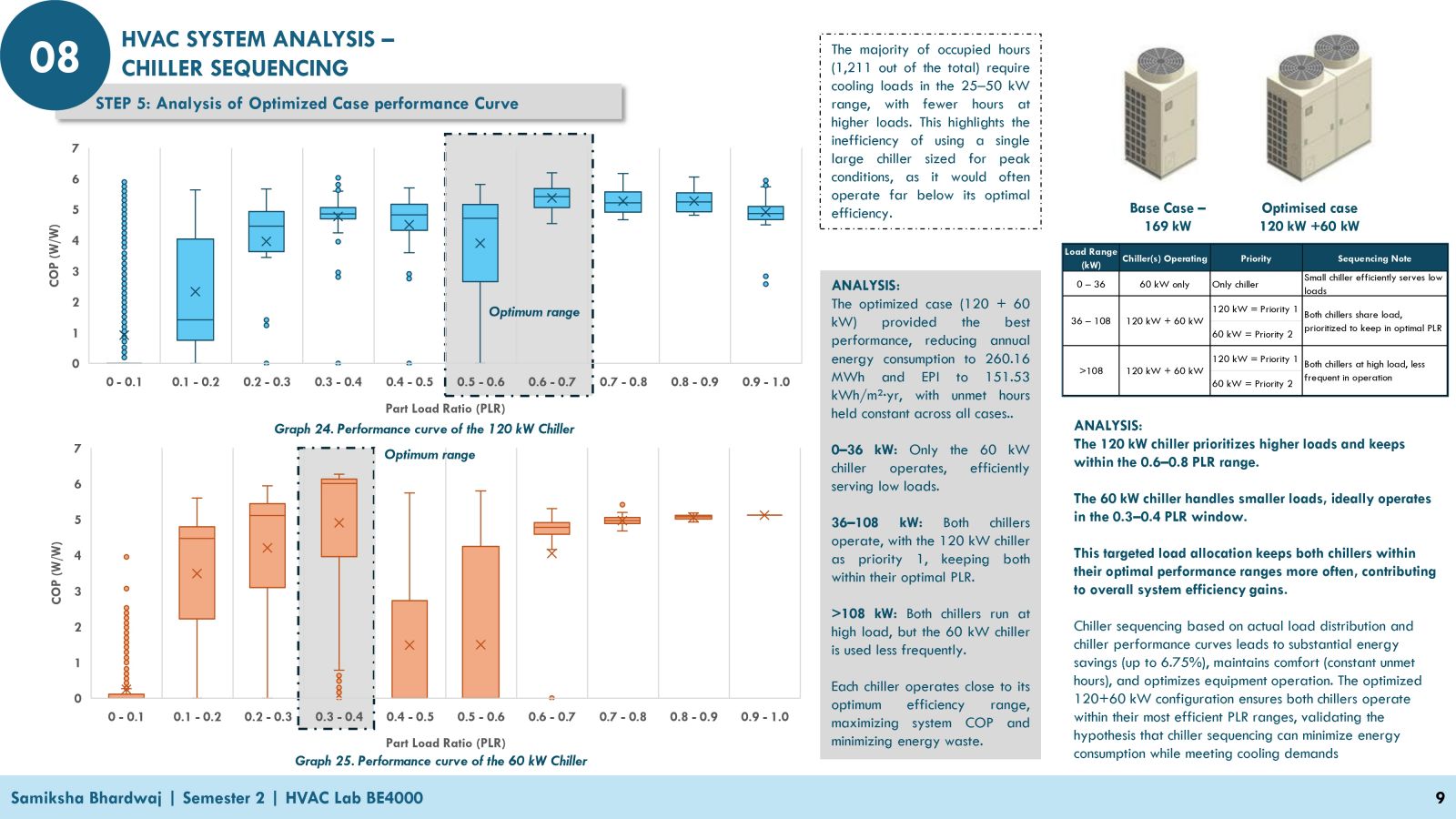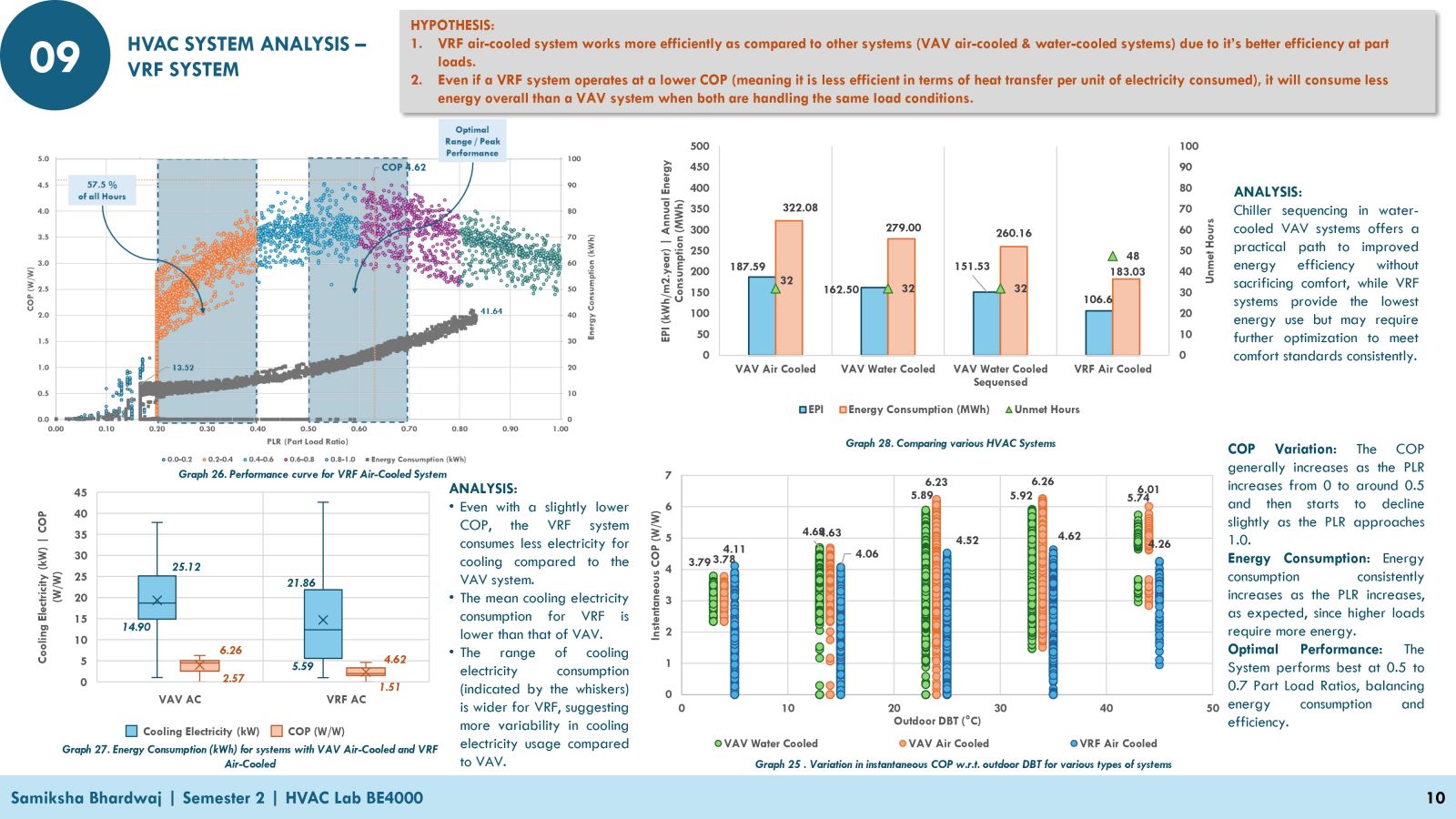Your browser is out-of-date!
For a richer surfing experience on our website, please update your browser. Update my browser now!
For a richer surfing experience on our website, please update your browser. Update my browser now!
The HVAC Laboratory semester focuses on Building Energy Performance through key HVAC concepts. It covers thermodynamics of refrigeration cycles, types of air-conditioning systems (window, split, central), HVAC distribution, and control strategies. Topics include ventilation principles, indoor air quality, filtration, and HVAC load calculations (e.g., RLF method). It involves hands-on experience with environmental parameters such as temperature, humidity, CO?, PM, and power. Practices like ventilation rate measurements (e.g., tracer gas method), energy data analysis, and equipment installation (e.g., HRV/ERV). The Building Simulation module teaches to model HVAC systems in buildings, assess performance, and explore low-energy or hybrid cooling strategies. The course combines theory, practice, and simulation for energy-efficient building design.
